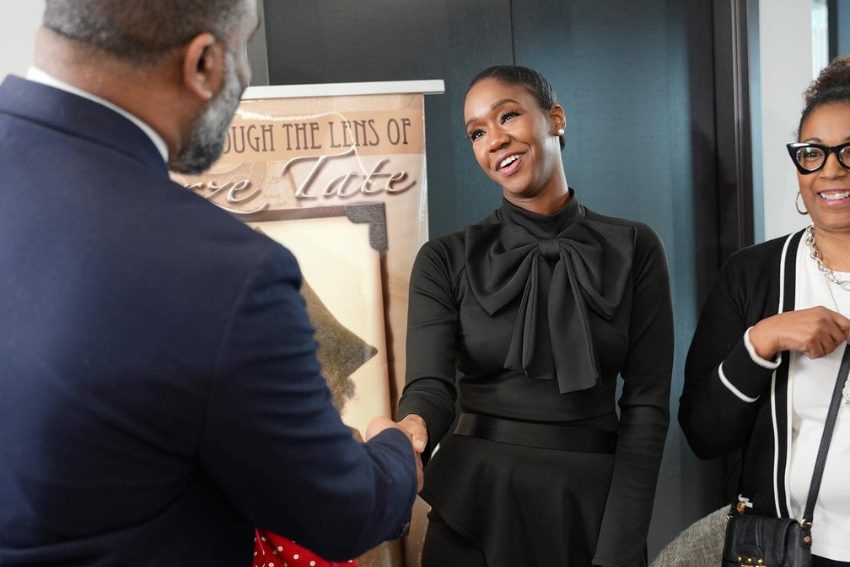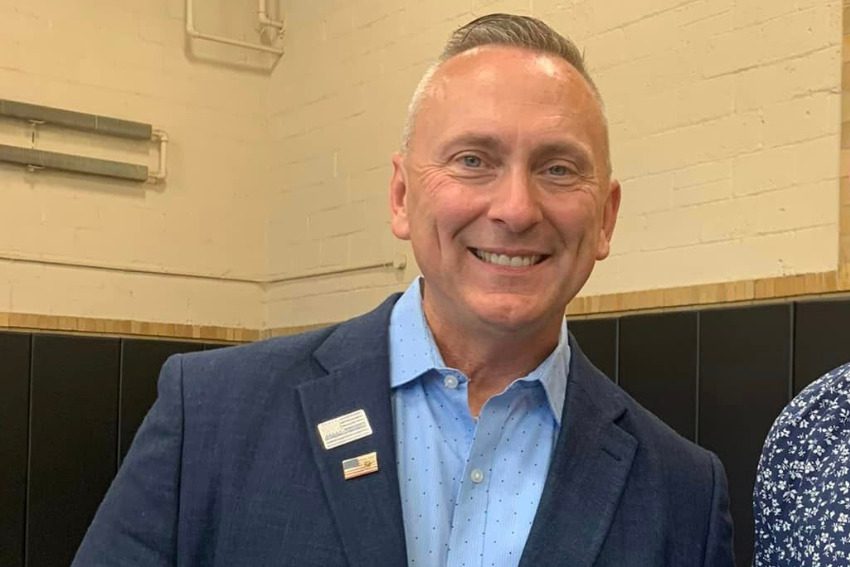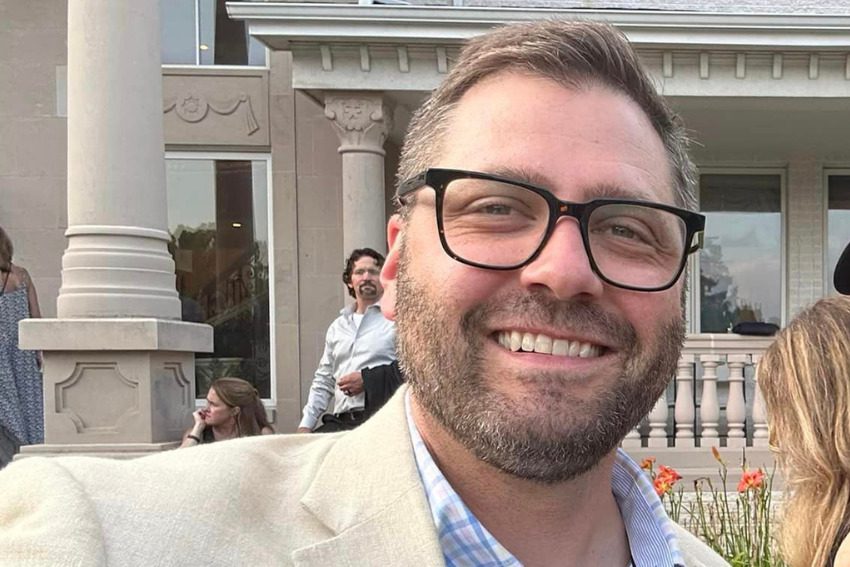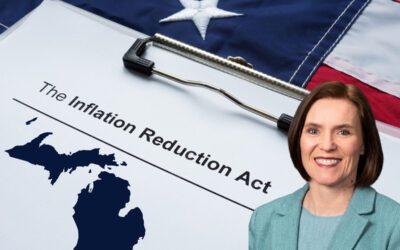
Two Republicans and two Democrats have been nominated to run for two open seats on the Michigan Supreme Court—and whoever wins in November will have a hand in making some important decisions for the people of Michigan.
MICHIGAN—Michigan Democrats and Republicans have each nominated two candidates for two open seats on the state Supreme Court—sending four names to the ballot in November, where millions of voters will decide which two candidates will take a seat on the bench in 2025.
Here’s the deal:
Two seats on the state Supreme Court are up for grabs in this year’s election, providing Michigan voters with a chance to decide the makeup of the most powerful court in the state this year—as well as who has the final say on some of the most important legal issues in Michigan.
State Supreme Court elections in Michigan are technically nonpartisan—meaning candidates appear without a party label on the ballot. But the nominees are chosen by party convention.
Democratic-backed justices currently hold a 4-3 majority on the Court. Republican victories could flip control of the court, while two Democratic wins would yield a 5-2 majority.
With crucial decisions involving reproductive rights, abortion bans, gun safety laws, and election integrity all making their way to state supreme courts across the country in recent years, whoever wins will likely have a hand in making some big decisions for the people of Michigan.
Who’s running?
State Supreme Court Justice Kyra Harris Bolden, who was appointed in 2022 by Gov. Gretchen Whitmer, was nominated by the Michigan Democratic Party on Saturday to finish out the remainder of former Chief Justice Bridget McCormack’s term, which expires in 2029.
Bolden will face off in November against 15th Circuit Court Judge Patrick O’Grady, who was also nominated by the Michigan Republican Party on Saturday to run for a seat on the bench.
Democrats also nominated Kimberly Ann Thomas to run for a full, eight-year term on the bench to replace Justice David Viviano, who is retiring at the end of the year. She’ll face off against state Rep. Andrew Fink, who was also nominated by the Michigan GOP on Saturday.
Kyra Harris Bolden
Kyra Harris Bolden, a former state representative from Southfield, is the first Black woman to serve on the Michigan Supreme Court, and would be the first Black woman elected to the Court.

She is currently serving in her second year on the court and “remains committed to ensuring equal access to justice, applying the law without fear or favor, and treating all who come before our state’s highest court with dignity and respect,” according to her campaign website.
“We are just people trying to make the best decisions possible,” Bolden told The ‘Gander. “We’re trying to follow the law, and sometimes that means making unpopular decisions, but people should have the opportunity to be heard and respected. That should be non-negotiable. That doesn’t mean that you win, but it means that you had a fair opportunity to be heard.”
As a former member of the state House of Representatives, Bolden was openly pro-choice and pro-labor. She also crafted (and passed) five bipartisan bills focused on criminal justice reform and protecting survivors or sexual violence.
Her experience in the legislature has also informed how she approaches her role on the court.
“I’ve made laws, passed laws, and I’ve voted on countless bills. Sometimes a strict textualist approach is not going to be helpful because our laws are not necessarily clear and they don’t contemplate every situation,” Bolden told The ‘Gander. “I have to leave myself malleable to take in all the information and try to make the best decision based on the information in front of me.”
Bolden graduated from Grand Valley State University and the University of Detroit Mercy School of Law, has worked as an attorney in southeast Michigan, and was reportedly inspired to pursue law after she learned the story of her great-grandfather, who was lynched in Tenesee in 1939.
She’s also a member of the Association of Black Judges of Michigan, the Wolverine, Straker, and Oakland County bar associations, and the Alpha Kappa Alpha sorority. Bolden has also received several awards—including the NAACP’s Ida B. Wells Freedom and Justice Award.
Ahead of the election, Bolden has been endorsed by several major reproductive rights groups, which say that Michiganders can trust Bolden to protect their legal right to access abortion.
Patrick O’Grady
Patrick O’Grady is a longtime 15th Circuit Court judge in Branch County, a US Army Reserve veteran, a former Michigan State Police trooper, and a former assistant Branch County prosecutor who claims to have presided over 14,000 cases during his time on the bench.

During a recent debate, O’Grady introduced himself as a Christian man who, if elected, would adhere to a strict, textualist interpretation of the state Constitution as a “rule of law judge.”
That’s the same mentality that guided the majority on the US Supreme Court that overturned Roe v. Wade and peeled back the constitutional right to abortion for millions of women.
“We now have a far left court, and I’m coming before you to run for Supreme Court to take it from the far-left back to normal. And what do I mean by normal? I mean rule of law, constitutional textualist court,” O’Grady told a crowd at a rural church earlier this month.
During the debate, O’Grady also voiced opposition to a recent Michigan Supreme Court decision that will reinstate paid sick leave laws and lead to an increase to the state’s minimum wage. He also spoke at length about how Michigan was formed “pursuant to almighty God.”
“We are very fortunate that we do have a country that was founded on Judeo-Christian principles of our founding fathers. We also have the same thing for our state,” O’Grady said. “If you read the preamble to the state Constitution, they’re basically forming this state pursuant to Almighty God. It’s in the preamble. It’s right there. That’s how they open it up. A group of people saying, ‘we’re getting ready to create this state, and we’re doing it for almighty God.’”
He added: “When you have a Christian worldview as an example, your conscience is in line with [the state Constitution]. It’s really only when you don’t have that or when you’re trying to stretch them, bend them, change them, create something that’s not there, it’s acrimony in your soul.”
During the recent debate, O’Grady also said that he admires US Supreme Court Justice Clarence Thomas, who, in addition to facing a corruption scandal, generally opposes constitutional protections for abortion and LGBTQ rights. O’Grady said he’s “an incredible man.”
Kimberly Ann Thomas
Kimberly Ann Thomas is a law professor at the University of Michigan Law School and director of the Juvenile Justice Clinic, where she and law students represent people who can’t afford lawyers. She also teaches students about legal ethics and provides support for Michigan youth.

If elected in November, Thomas said she plans to “bring a new voice of integrity and fairness” to the state Supreme Court—using a judicial philosophy “grounded in her knowledge applying the law and dedication to equal justice for all Michiganders,” according to her campaign website.
“I really understand how our court systems function, what that experience is like, what clients feel in that system, and how they want to be heard,” Thomas told The ‘Gander this summer. “They want to make sure their voices are respected. They worry about the quality of justice.”
Thomas studied at the University of Maryland and received her law degree from Harvard Law School. She has also taught law school in Ireland, and received a Fulbright Scholar award.
More recently, she also served on the state’s Task Force on Juvenile Justice Reform, which took a data-driven approach to recommend ways to help improve the state’s juvenile justice system.
Thomas’ experience representing low-income Michiganders and teaching students legal ethics will help her “bring a voice of integrity and knowledge” to the state Supreme Court and ensure “access to justice and that each litigant is heard and respected,” her campaign website states.
“I don’t prescribe to a particular philosophy,” Thomas told The ‘Gander. “I think we need our state court justices to get it right. We really need them to be careful. We need them to do all the work. We need them to listen, pay attention, and not think they know it all right away.”
Like Bolden, Thomas has also been endorsed by a wide array of reproductive rights groups.
Andrew Fink
State Rep. Andrew Fink (R-Adams Township) opted against running for a third term in the state Legislature this year to instead pursue a Republican bid for the Michigan Supreme Court.

Like O’Grady, Fink also raved about Clarence Thomas at the recent debate, and told attendees that he was opposed to the decision that will increase the state’s minimum wage. He also objected to another ruling that upheld stricter air pollution standards for large factory farms.
Fink also said that he subscribes to a “constitutional conservative” judicial philosophy—which has been used in other courtrooms, like the US Supreme Court, to peel back abortion rights.
Believers in this philosophy essentially argue that because the word “abortion” isn’t literally included in the text of the Constitution, then reproductive health care cannot be considered a “fundamental constitutional right,” as Justice Samuel Alito wrote for the majority in Dobbs v. Jackson Women’s Health Organization, which overturned Roe.
During his time in the Legislature, Fink sponsored legislation to ban abortion after fetal viability, as well as a bill that would have reportedly created a legal loophole in the state’s newly expanded civil rights laws—namely by allowing for discrimination against LGBTQ people, just as long as that discrimination aligned with the practice of a religion. Both bills failed to advance.
According to his campaign website, Fink is running for the state Supreme Court “because our justice system needs to be focused on the law” and because he felt compelled by a “sacred duty” to uphold the Constitution. His campaign website doesn’t mention any other specific issues beyond a broad commitment to “defending our rights” and “constitutional freedoms.”
“I am ready to take the oath of office and do justice under law,” his website states.
Fink is also a card-carrying member of the Federalist Society, a right-wing legal network that has reportedly adopted a wide range of election-related conspiracy theories and whose members have publicly promoted false statements about a “stolen” election in 2020.
And since taking office, Fink has repeatedly voted against bills that were designed to make it easier for Michiganders to vote—including new laws to expand voter registration—as well as laws that criminalize poll worker intimidation and regulate artificial intelligence political ads.
Fink also has a bachelor’s degree from Hillsdale College, a college that has reportedly become involved in many political issues in recent years—including Trump’s attempt to overturn his defeat in 2020. Fink also reportedly worked as a district director for former state Senate Majority Leader Mike Shirkey, who falsely claimed that the Jan. 6 attack on the US Capitol was staged.
Why does it matter?
The state Supreme Court is the highest legal authority in the state, and it wields the power to decide whether laws are constitutional and whether voter ballot initiatives can move forward. The Court also has the power to interpret state laws and how they apply to Michiganders.
For example, in September 2022, after a ballot initiative to enshrine reproductive rights into the state Constitution was initially blocked by Republicans on the state Board of Canvassers, the Michigan Supreme Court stepped in and approved the initiative.
That decision was ultimately the only reason why Michiganders could decide on issues like abortion access (and expanded voting accessibility) via ballot measures in November 2022.
Last year, the Court also decided that ex-President Donald Trump should remain on the presidential election ballot this year, despite his role in the Jan. 6 insurrection at the US Capitol. And this year, the Court ruled to reinstate a series of increases to the state’s minimum wage.
Democrats and Republicans are likely to rule differently on different subjects. And recent decisions in other states have shown just how powerful a role state supreme courts play.
In Arizona, for instance, the state Supreme Court in April upheld a 160-year-old law that banned all abortions unless the patient’s life was in danger, though that law has since been repealed.
In Alabama, another state Supreme Court decision found that frozen embryos were people and (temporarily) caused IVF providers to stop offering services in the state. The Florida Supreme Court in April also upheld a 15-week abortion ban, a decision that allowed a six-week ban to go into effect this summer.
The Court could also impact future presidential elections as Republicans continue to undermine the state’s election systems. In 2020, for instance, the Michigan Supreme Court decided not to hear a legal challenge to the state’s presidential election results—instead concluding based on a mountain of evidence that ex-President Donald Trump had lost the race in Michigan.
Election experts say those who dispute valid election results (with no evidence of fraud) pose a danger to future elections and could trigger chaos if they refuse to accept results they don’t like.
Editor’s Note: This story has been updated and corrected to reflect new information that was recently presented to The ’Gander Newsroom by Fink. That information confirms Fink was not in attendance at a “Stop the Steal” rally at the state Capitol on Jan. 6, 2021, as had been previously reported here and elsewhere. We regret the error.
READ MORE: Republican candidates go full MAGA at Michigan Supreme Court debate
For the latest Michigan news, follow The ‘Gander on Twitter.
Follow Political Correspondent Kyle Kaminski here.
Support Our Cause
Thank you for taking the time to read our work. Before you go, we hope you'll consider supporting our values-driven journalism, which has always strived to make clear what's really at stake for Michiganders and our future.
Since day one, our goal here at The 'Gander has always been to empower people across the state with fact-based news and information. We believe that when people are armed with knowledge about what's happening in their local, state, and federal governments—including who is working on their behalf and who is actively trying to block efforts aimed at improving the daily lives of Michigan families—they will be inspired to become civically engaged.


What happens next? A timeline of the process between voting and inauguration
My fellow Americans, we have reached the other side. Months of debate, campaign ads, unsolicited text messages, canvassers at the door, and a news...

Presidential race too close to call as vote counts continue in key swing states
Results in Michigan, Pennsylvania, and Wisconsin may not come in until Wednesday morning, and Arizona and Nevada are unlikely to see calls made...

Early results: Democratic-backed candidates win both seats on Michigan Supreme Court
Preliminary election results show that Democratic-backed candidates Kyra Harris Bolden and Kimberly Ann Thomas have defeated their Republican-backed...

Reporter’s notebook: Here’s what the vibe was like at polling places across Michigan
Michiganders are showing up to elect the next president of the United States—and bringing the good vibes with them. MICHIGAN—Election Day is nearly...

On the eve of Election Day, Walz calls on Michigan voters to bring home a Harris presidency
BY KYLE DAVIDSON, MICHIGAN ADVANCE With the clock ticking down to Election Day, Michigan Democrats readied themselves for one last push as they...







